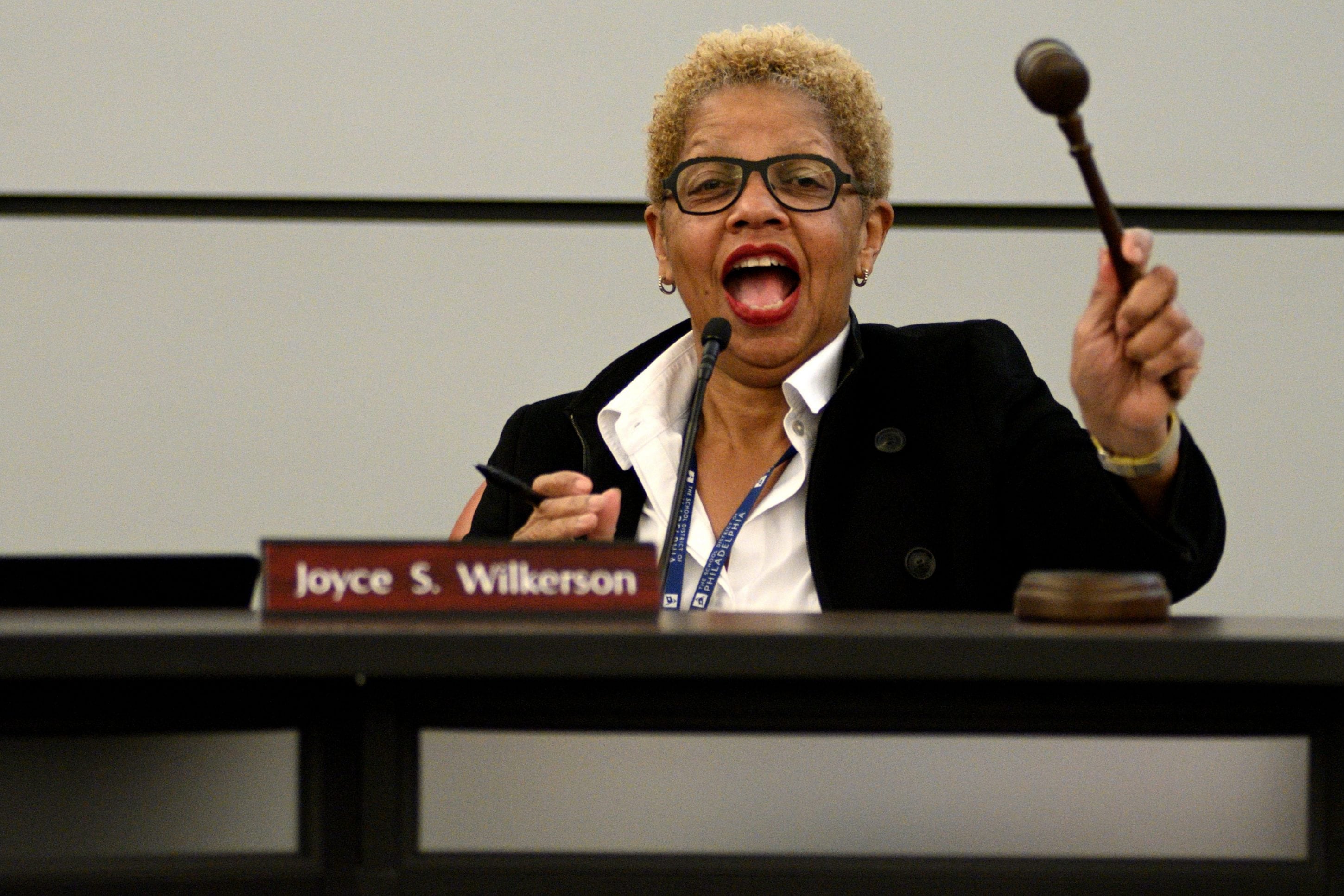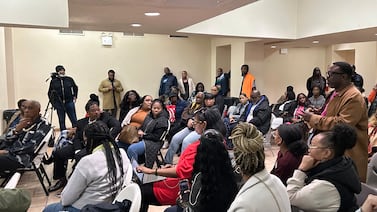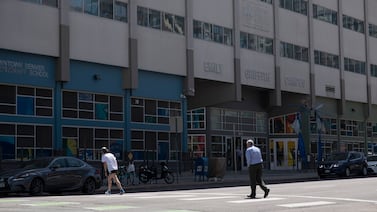The Philadelphia Board of Education is embarking on an ambitious effort to reframe its stewardship of the school district around improving student achievement, outlining a strategy that will require big changes in the way it has traditionally done business.
Superintendent William Hite called it a “game changer.”
“It’s time to move beyond ‘system survival’ mode and to focus on the success of all our students,” Joyce Wilkerson, board president, said in unveiling the five-year strategic plan. The plan, she said, is the board’s effort to “deliver on the promise of local control, and it starts with the most basic question, ‘Why do our schools exist?’ They exist to provide every student with the tools and experiences they need to be successful.”
Board members said they spent two years on this project, consulting with the Council of Great City Schools and talking to their peers across the country. They also held town hall meetings with parents, teachers, and community members locally.
Part of that time was spent comparing Philadelphia’s test scores to other cities’ on the National Assessment of Educational Progress, also known as the “nation’s report card,” or NAEP. The test is given to a sample of students across the country and is widely viewed as one of the best benchmarks of student learning. It has no high stakes.
The bottom line for Philadelphia: When measured by national tests, the district scores far worse compared to other large urban districts with a large number of low-income students. Fewer than 20%of the city’s fourth and eighth graders met national benchmarks in math and reading on the last NAEP test, which was administered in 2019. That performance put Philadelphia – the nation’s poorest big city – behind 16 other districts in fourth-grade math and eighth-grade reading and math. In fourth-grade math, it was behind 19 other districts.
“Philadelphia is not keeping up with our peers,” Wilkerson said. “It’s sobering. It shows that as a whole, we are not doing what we need to for our students.”
She added: “We know it’s possible,” based on what other cities have achieved and the pockets of individual school successes in Philadelphia.
Calling their new direction “goals and guardrails,” board members plan to focus on making sure all students stay on grade level throughout their school careers and graduate high school with the “tools and experiences they need to succeed in the global economy.”
“I’m not sure whether those who are listening realize how this is a paradigm shift,” said board member Angela McIver.
The guardrails set “non-negotiable” conditions for schools, including a welcoming environment, access to “well rounded” experiences for all students, including arts and athletics, robust partnerships with students’ families, and addressing systemic racism.\
It is both “obvious and revolutionary…to focus on student achievement,” said board member Lee Huang.
The school board resumed control of the district in April 2018 after nearly two decades under the state-dominated School Reform Commission, an era that Wilkerson – who served briefly as the SRC chair – said paid little attention to student achievement, focusing instead on management tasks, such as approving vendor contracts.
“In one evaluation, the Council of Great City Schools estimates that the SRC spent just 10% of the time talking about student learning,” she said. “Let’s focus less on who gets what contract and more on the big picture.”
Even so, some progress was made in the reform commission era, she said. Based on state tests, more schools moved into the high-performing category and many moved out of the lowest performing category. The graduation rate went up.
Board meetings will look different from now on, with more public engagement and discussion of data, members said. There will be monthly monitoring in public, using data. The vision will guide board self assessments and the annual evaluation of the superintendent.
The first specific goal is to grow the percentage of third through eighth graders who read on grade level according to state tests from 35.7% to 65% by 2026. The board will also compare the academic performance of different subgroups of students, including the economically disadvantaged, racial and ethnic categories, English learners and special education students.
“Systemic racism is alive in our district,” Wilkerson said in a briefing for reporters on Wednesday.. “We’ll be tracking suspension data carefully,” she said. “We’re taking a look at everything in the curriculum…retooling the way we spend money and developing more effective academic programs and getting more out of the resources we have.”
The project is beginning in a time of crisis, when the district is looking at looming funding shortfalls due to the pandemic and still trying to determine how virtual schooling has further damaged students academically.
But Wilkerson and other board members said this is the right time to change direction.
“It’s essential to do this at this moment,” said Mallory Fix-Lopez.
Hite agreed. “It does provide us with a focused effort around student outcomes,” he said. “This changes how we look at data…and changes the types of questions we should be asking.”
Board member Julia Danzy said that this may be unsettling to teachers and others who work in the district. She said she understands that people are working hard and trying their best. But doing that and not getting the desired results “causes burnout,” she said. “Our actions are not indictments against you but a critical examination of the system.”
The board faces many obstacles trying to bring about dramatic change: It does not control its sources of revenue – it is dependent entirely on the city and state for funding — and, unlike other school boards in Pennsylvania, it has no taxing authority.
The teachers’ contract also dictates how teachers are assigned to schools. Fix-Lopez said that one issue they know affects student learning is class size, but changing the way teachers are allotted to direct more to the neediest schools would require agreement from the union.
At the board meeting, some members of the public were skeptical about the plan and urged stronger actions.
Community member Horace Clouden said the board should replace Hite, crack down on what he said was poor teacher attendance, and dismiss principals whose schools are underachieving. “Start firing people and not relocating them,” he said.
Cheri Micheau, who used to work in the district with English language learners and students who have immigrated, said she is not confident their concerns will be fully addressed, especially regarding their access to special admission schools.
“These failures are to be sure examples of racism, ethnic discrimination and linguicism. I urge you to mention these students specifically in this document since they are members of yet another group disadvantaged in their daily educational experiences in Philadelphia schools.”
Parent Stephanie King said the board has a long way to go to rebuild trust with the community.
“The goals are aspirational, the guardrails would be a welcoming environment to achieve those goals,” King said. “And I am here to tell you that you cannot achieve any of those things unless you repair the trust and relationship with the people in the schools. The students, the parents, and the teachers. You say you want every student at grade level for math and reading, but you refuse to listen when teachers tell you what they need.”
Mayor James Kenney is in the process of naming three new members to the nine-member board. Activist groups want more input into the process. Two members, Chris McGinley and Ameen Akbar, resigned earlier this year. Huang announced his intention to step down as soon as a replacement is seated.
Johann Calhoun also contributed to this report.






